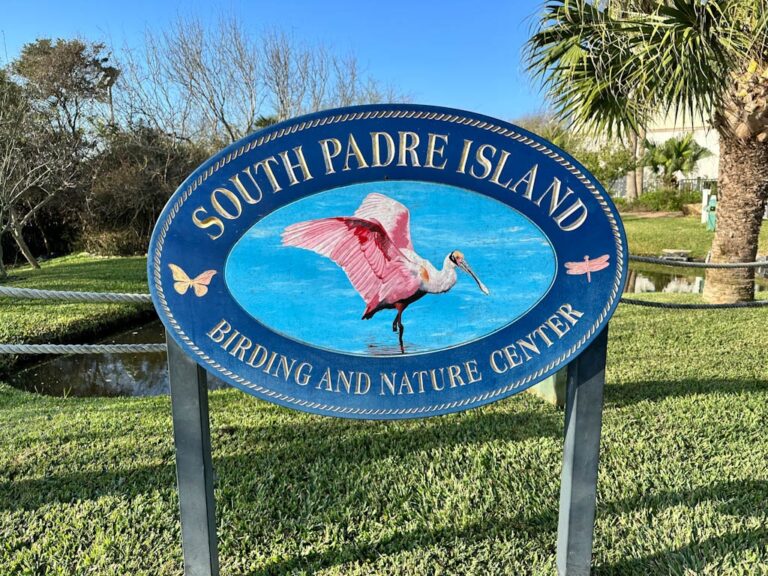We spent the weekend in South Padre Island, a small barrier island off the west coast of Texas. The first morning I decided to visit the Birding and Nature Center located on the southern end of the island. Surprisingly, this visit brought a rare bird variant I never knew existed, the “Mangrove Warbler”…
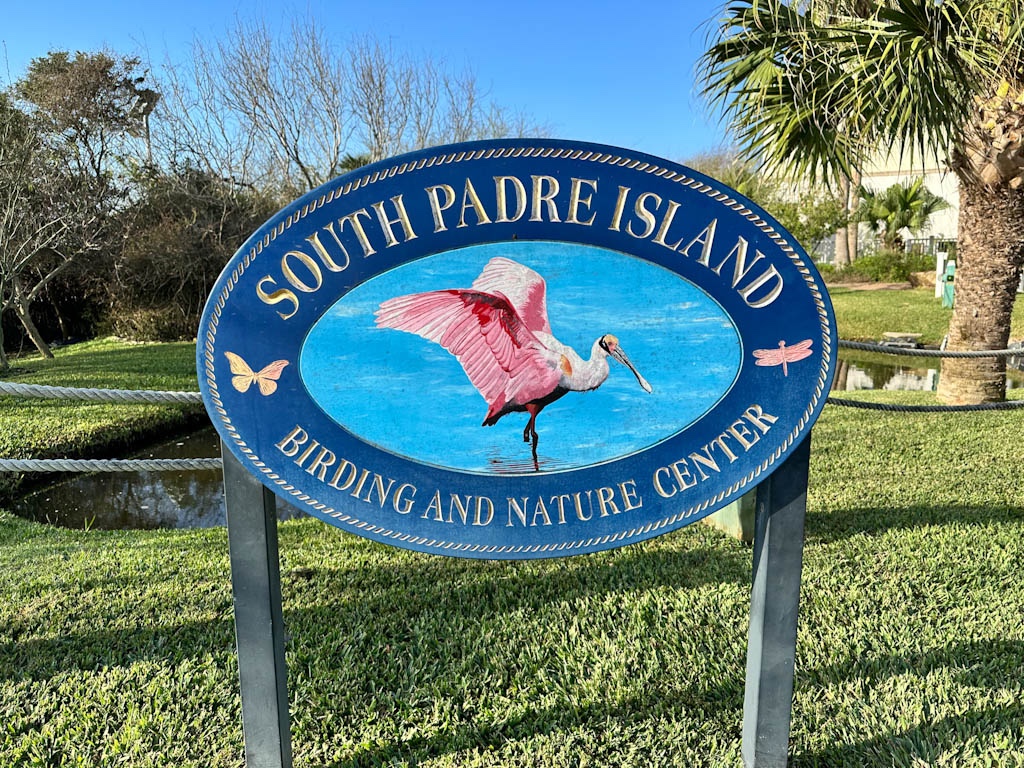
A tad too early…
I got to the nature center at 7:15 AM to learn they don’t open until 8. I took those 45 minutes to explore the accessible front side of the property to see what birds were around.
Recording gear in hand, I hoped there would be some good, loud birds to capture.
Blocked by ducks
After reading the front door of the nature center and learning they weren’t open yet, I turned around to look at the nearby water features. In that short time, around 10 Black-bellied Whistling Ducks landed on the sidewalk and started muttering at each other. I hit record and slowly approached them to reduce the recording distance.
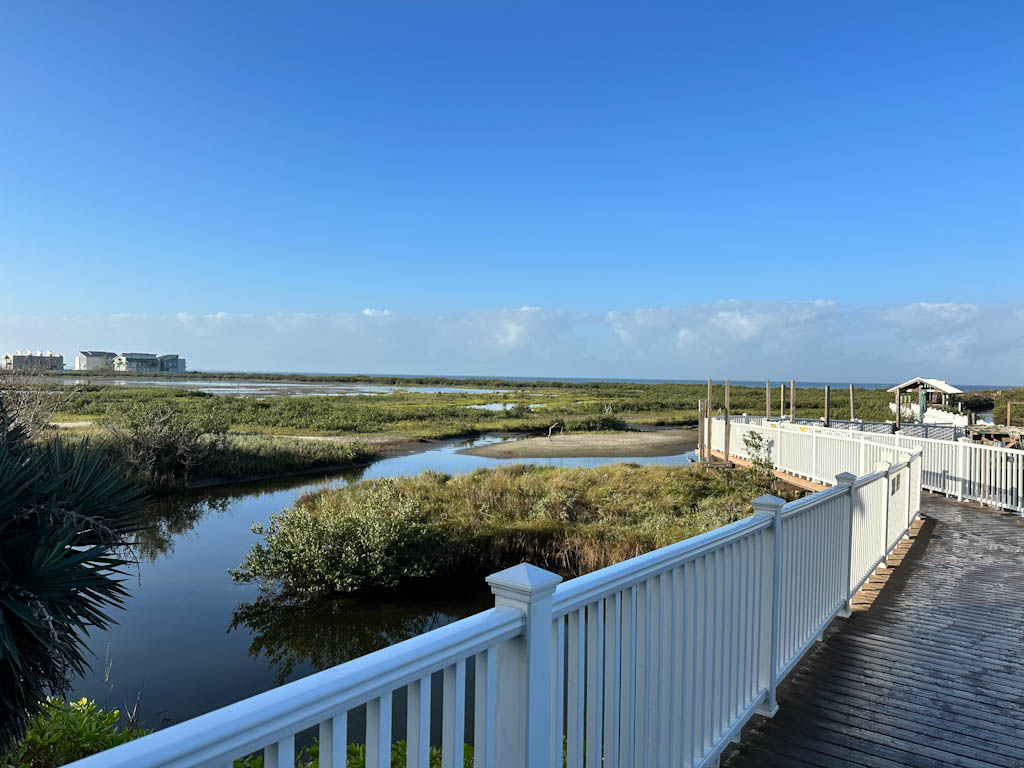
Kiskadee, kiska-doo
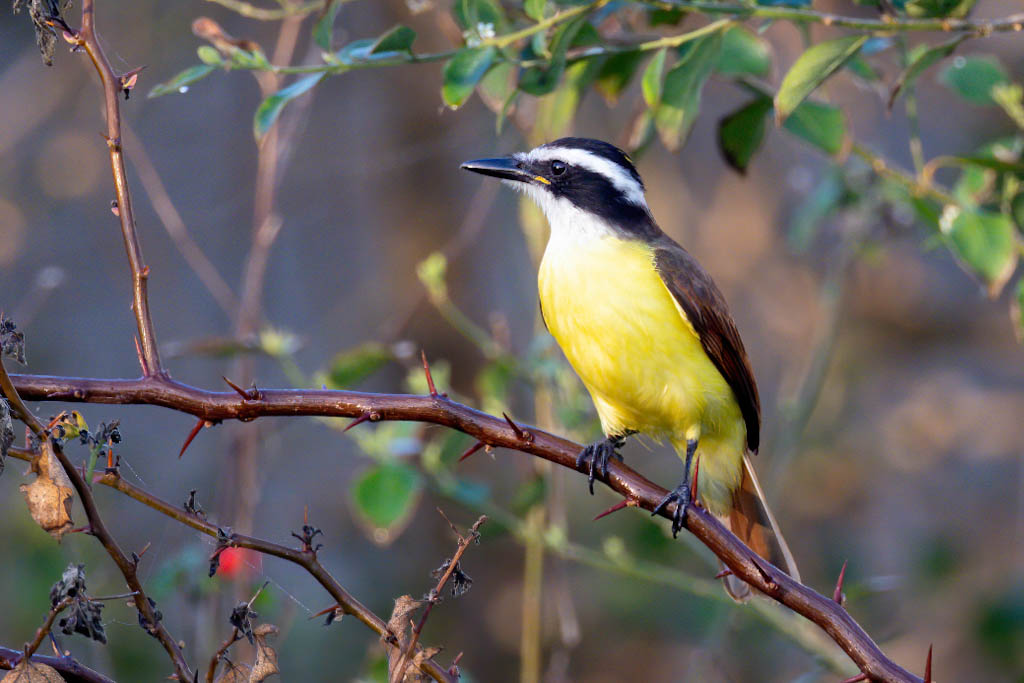
When I went to Cancun, Mexico in July, I had the treat of seeing many Great Kiskadees. The size of a kingbird, this cute bird has bold black and white stripes on its head, yellow undersides, and a brown back.
A Kiskadee flew in and landed on a perch near the pond and waterfall. I took a few recordings of its calls but the ambient noise polluted the clips. I exercised patience for a few minutes, and it paid off when the bird flew into a tree a bit further from the water. This was my chance. I slowly approached it without disturbance and captured the cute calls.
Couch’s or Tropical?
Kingbirds are hard to tell apart in regions where they overlap. In Texas, you can possibly see: Western Kingbirds, Couch’s Kingbirds, and Tropical Kingbirds (in places like South Padre Island). Another birder told me that you basically only see the Tropical variety in SPI. They must be identified by sound.
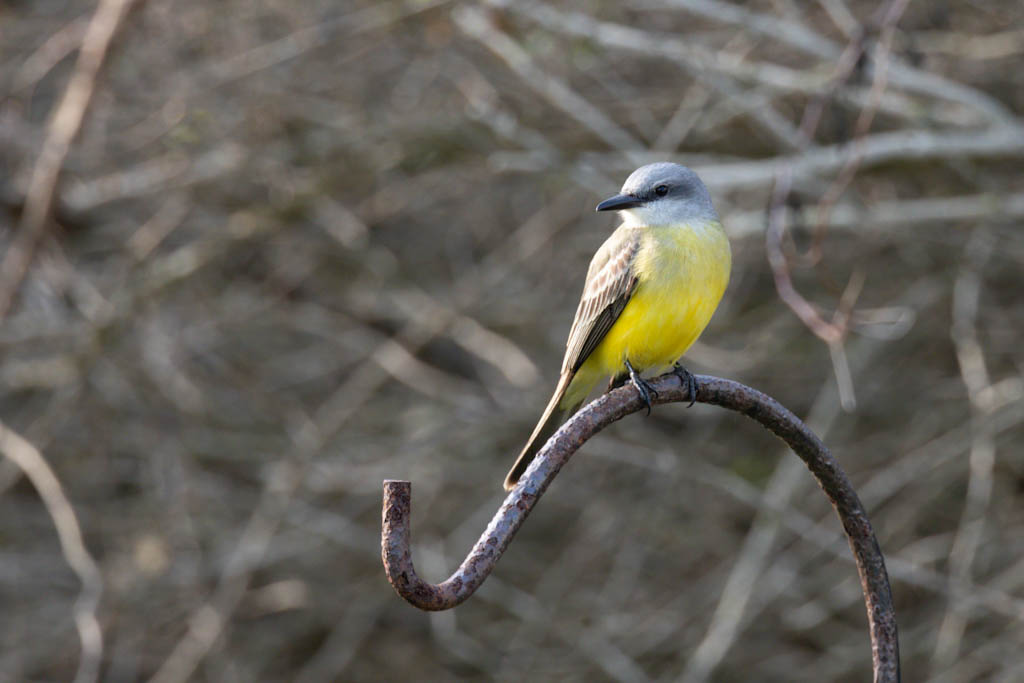
Assorted herons and egrets
A shadow caught my attention as it quickly flew down and landed next to a waterfall. This Tri-colored Heron was the closest and best view of the bird I’ve had. It sat motionless and silent until I left the area.
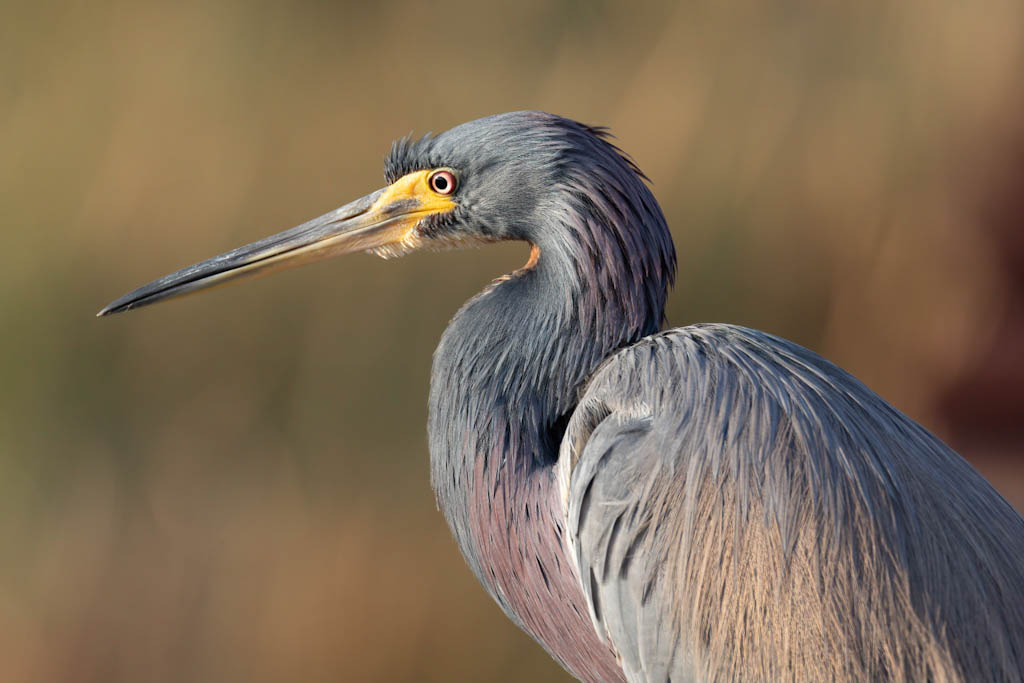
Reddish Egrets can be found dotting the Birding and Nature Center property. You’ll see them wading and hunting with the other birds, their muted red feathers stand out against the green and blue backgrounds.
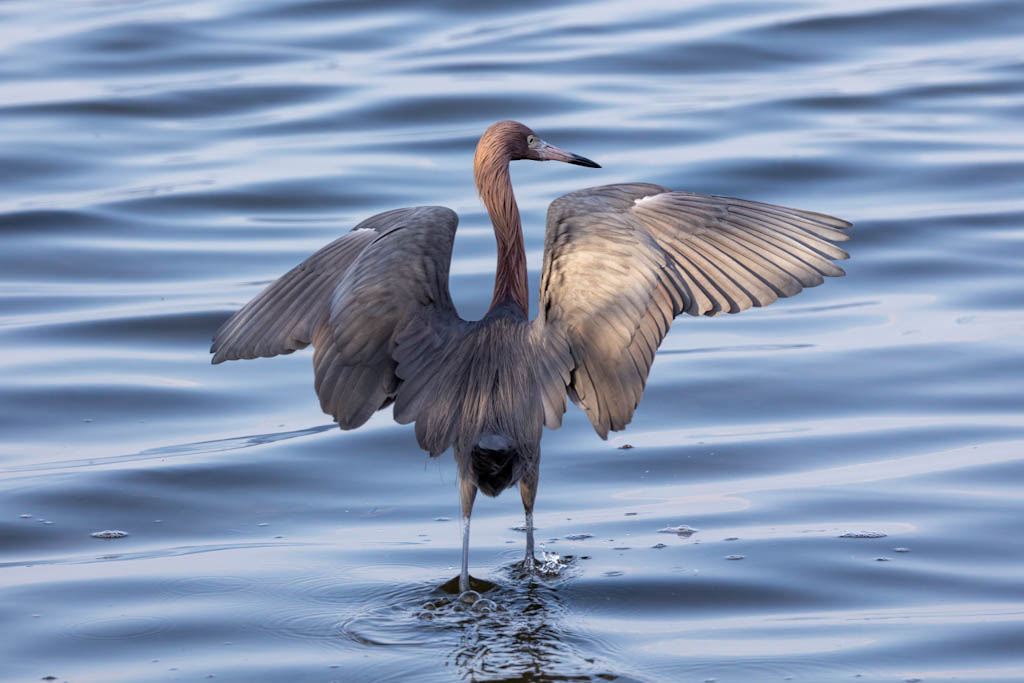
Common large birds like Great and Snowy Egrets, and Great Blue and Green Herons were easily spotted as their size and colors make them hard to miss.
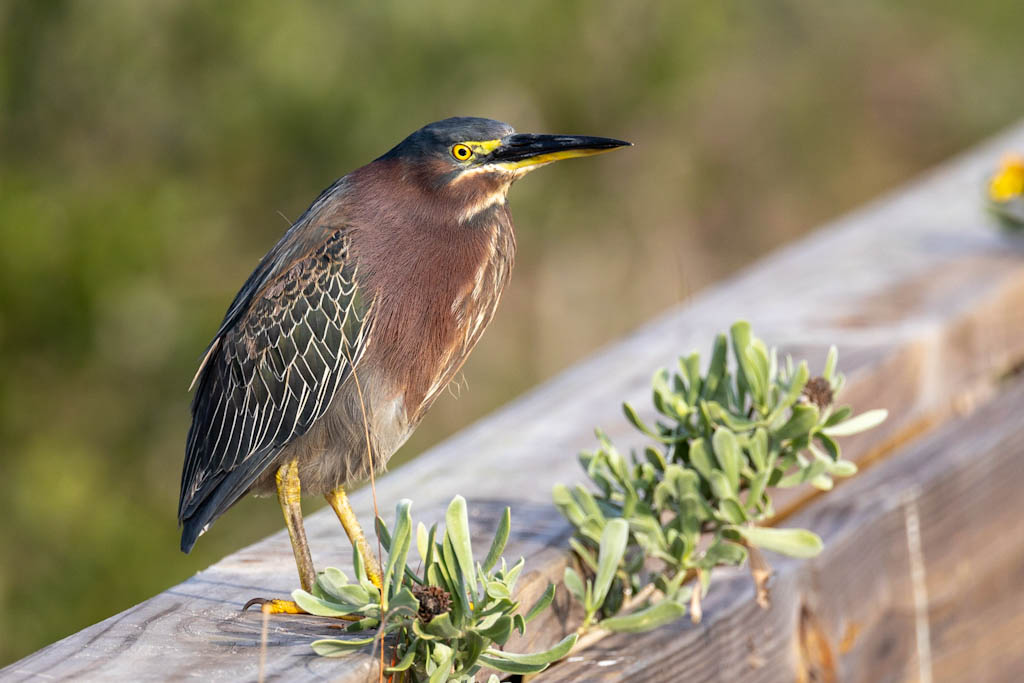
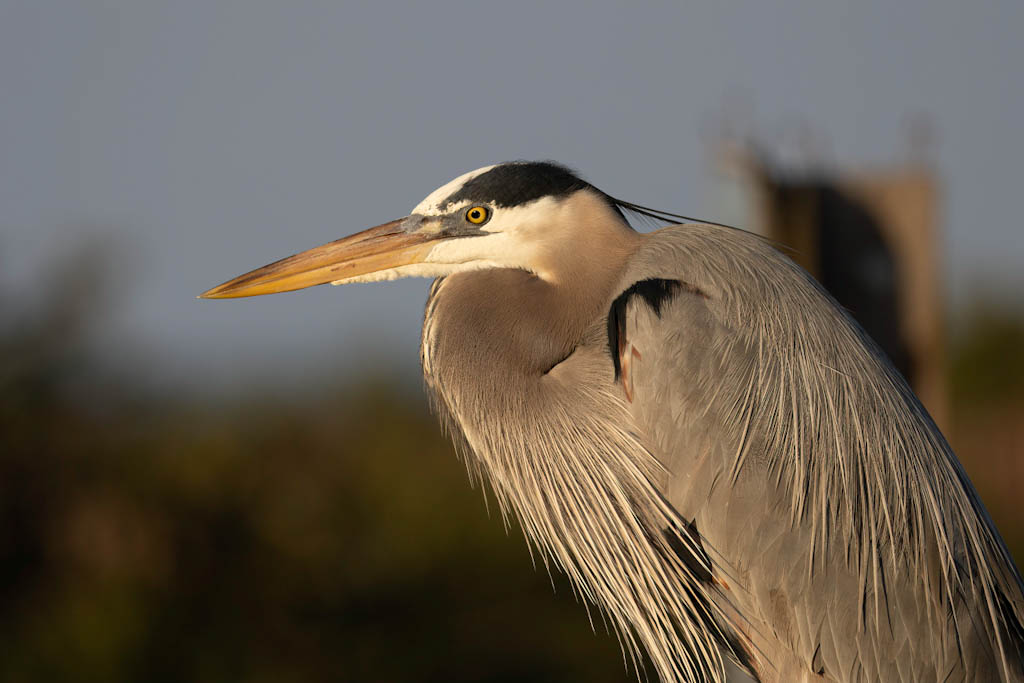
Pretty in pink
The prettiest bird of the day goes to the Roseate Spoonbill. On my first visit, one was dramatically bathing in the shallows next to the boardwalk. The golden sun illuminated it perfectly for everyone with cameras and eyes. When I returned the second day with my camera I didn’t get much luck but did see a few wandering around.
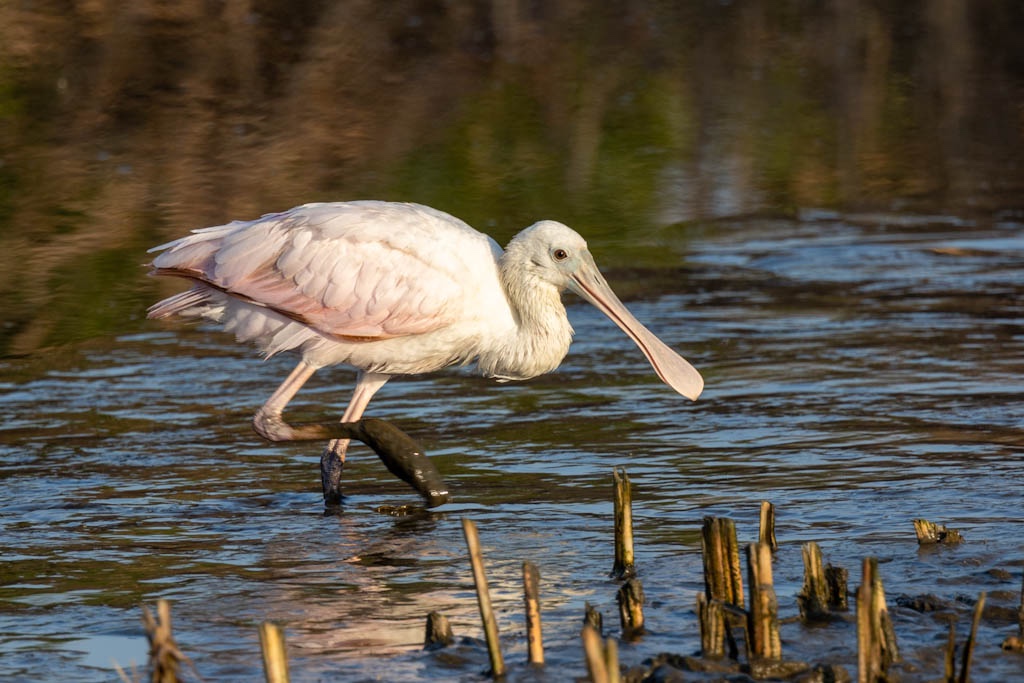
Lift your wings and scream
Noisy birds are the best. I love birds that are flamboyantly loud all the time like gulls and grackles. The Red-winged Blackbird is a card-carrying member of this group. There was no shortage of them at the Nature Center, so they could be heard in many of the clips I recorded there. One particularly brave bird was perched in a tree next to the boardwalk. It was unbothered as people walked closely past it.
I played it safe and took an initial recording from a conservative distance. Then, I moved in closer to see how far I could press my luck. Now, just over three meters away, I stood for several minutes making a long recording of it.
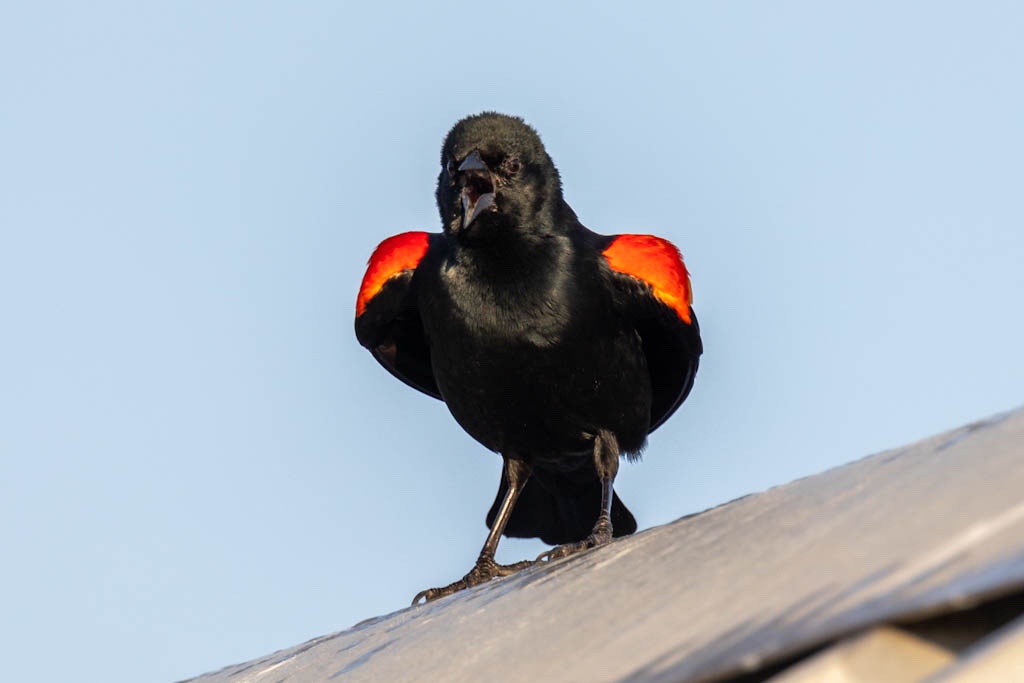
For a while, it was just making quiet chirps…but I was waiting for its signature sound. The moment finally came. It raised up its wings, exposed its bright red shoulders, and let out a shrill metallic cry. Following this was several additional minutes of quiet chirping. Listen to the lovely Red-winged Blackbird:
Chasing the “Mangrove Warbler”
Upon entering the Nature Center, the first thing I did was scurry over to other birders to ask what they were hoping to find. This is a great question to ask other birders because they may be visiting to see a specific bird. There is strength in numbers.
The “Mangrove Warbler” they replied. I asked what it looked like since I’d never seen or heard of it before. One of the men told me that it’s a variant of the Yellow Warbler where the males have a red-colored head. He said they have a distinct song and there are certain areas here where it’s been hanging out.
We were standing near a T-shaped intersection of the boardwalk where it was seen on multiple occasions. I wandered around the area and got a reading on Merlin of a Yellow Warbler call. I knew this had to be it, so I honed in on the source of the sound and recorded it from a few spots.
As I was getting ready to leave I chatted with some other visitors and informed them about the nearby birds and the warbler everyone wanted to see. Moments later, many birders nearby focused on one area. I hurried over to see and, behold, a great view of the Mangrove Warbler. Today was a dedicated recording day so I had to capture this photo on my second visit when I brought my camera. I got lucky to see it again.
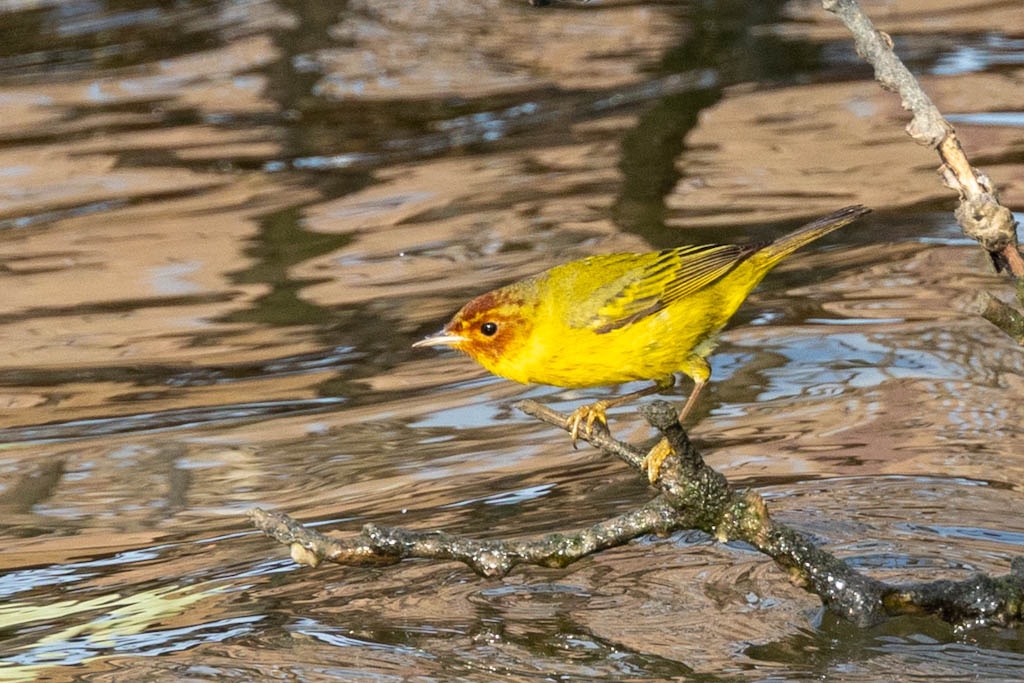
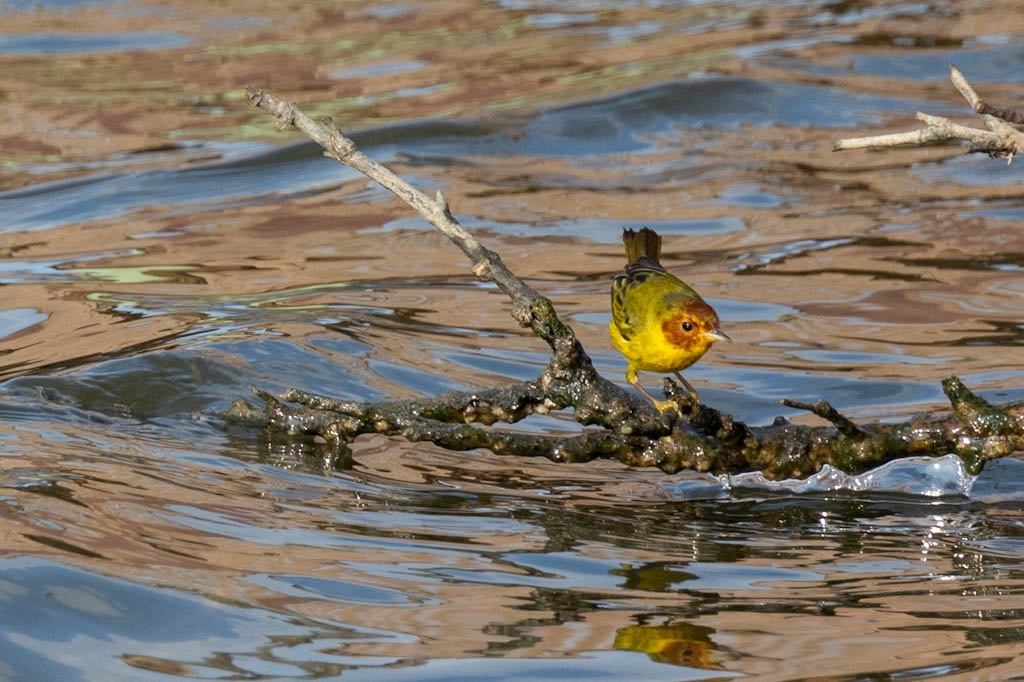
Northern Pintails
You can find Northern Pintails swimming throughout the waters in the nature park. Here is a photo and audio clip I captured.
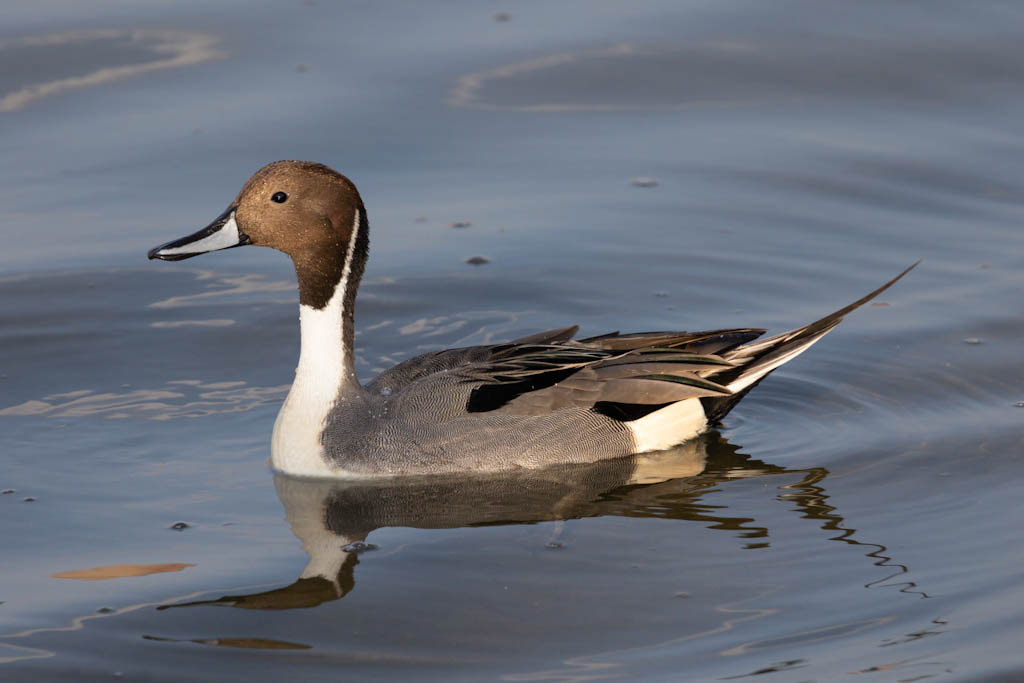
Two more marshy lifers
I saw a bird at the nature center that I thought was an American Coot, but it had a red beak. I didn’t question it too much at the time, but upon review at home, I realized it’s a Common Gallinule! Here is a recording of its call using my iPhone.
Clap for the Clapper Rail, this bird blended in with the others, but didn’t escape unnoticed.
Don’t forget the pelicans
The pelicans! This iconic staple of the island is found in and around the Birding and Nature Center. The way they glide smoothly like jets just above the water’s surface is beautiful.
Have you visited this great birding location in South Padre Island?
Today’s checklist
| Species | Count |
|---|---|
| Black-bellied Whistling Duck | 40 |
| Muscovy Duck | 1 |
| Blue-winged Teal | 3 |
| Mallard | 20 |
| Northern Pintail | 45 |
| Redhead | 13 |
| Rock Pigeon | 7 |
| Clapper Rail | 1 |
| Common Gallinule | 1 |
| American Coot | 30 |
| Black-necked Stilt | 11 |
| Black-bellied Plover | 1 |
| Sanderling | 33 |
| Spotted Sandpiper | 1 |
| Greater Yellowlegs | 2 |
| Willet | 2 |
| Lesser Yellowlegs | 1 |
| Laughing Gull | 180 |
| Ring-billed Gull | 27 |
| Caspian Tern | 1 |
| Royal Tern | 2 |
| Anhinga | 4 |
| Double-crested Cormorant | 6 |
| American White Pelican | 34 |
| Brown Pelican | 64 |
| Great Blue Heron | 12 |
| Great Egret | 1 |
| Snowy Egret | 1 |
| Tricolored Heron | 7 |
| Reddish Egret | 5 |
| Green Heron | 2 |
| Black-crowned Night-Heron | 1 |
| Yellow-crowned Night-Heron | 2 |
| White Ibis | 10 |
| Roseate Spoonbill | 5 |
| Osprey | 2 |
| Belted Kingfisher | 1 |
| Peregrine Falcon | 1 |
| Great Kiskadee | 5 |
| Tropical Kingbird | 3 |
| Northern Mockingbird | 2 |
| House Sparrow | 2 |
| Lesser Goldfinch | 1 |
| American Goldfinch | 1 |
| Red-winged Blackbird | 56 |
| Great-tailed Grackle | 92 |
| Orange-crowned Warbler | 6 |
| Common Yellowthroat | 3 |
| Yellow Warbler (Mangrove) | 1 |
| Yellow-rumped Warbler | 19 |
| Total | 48 |
